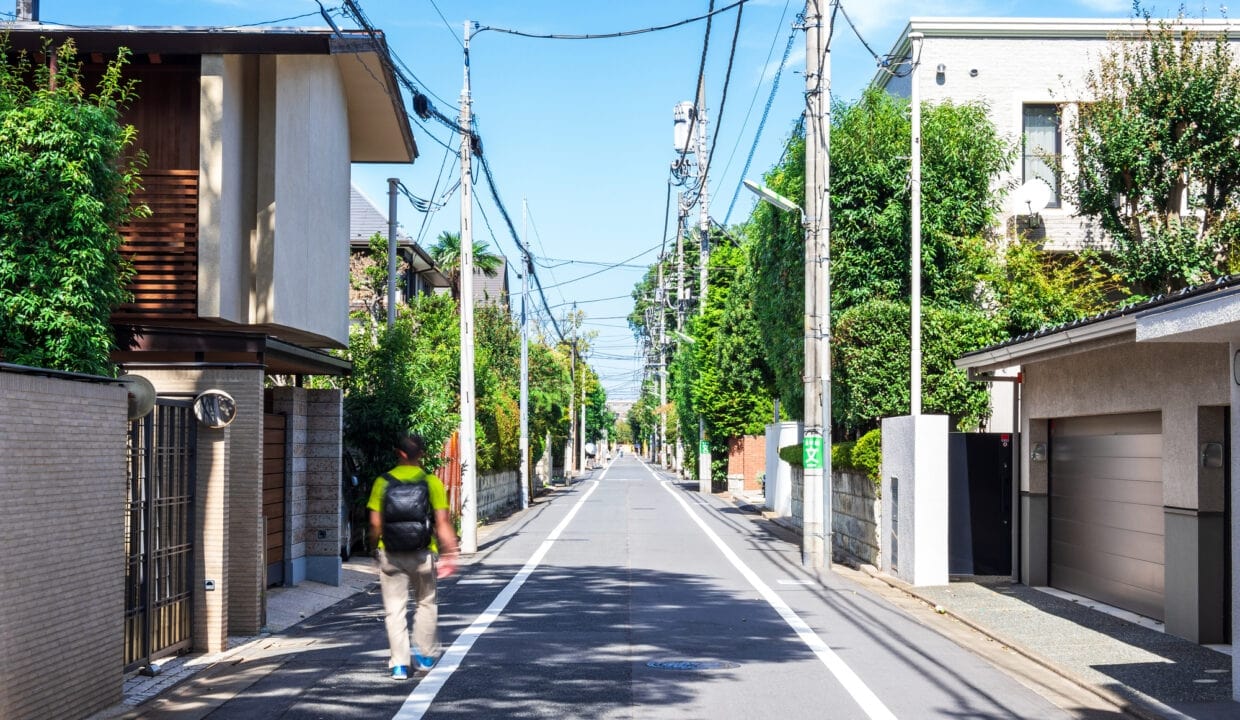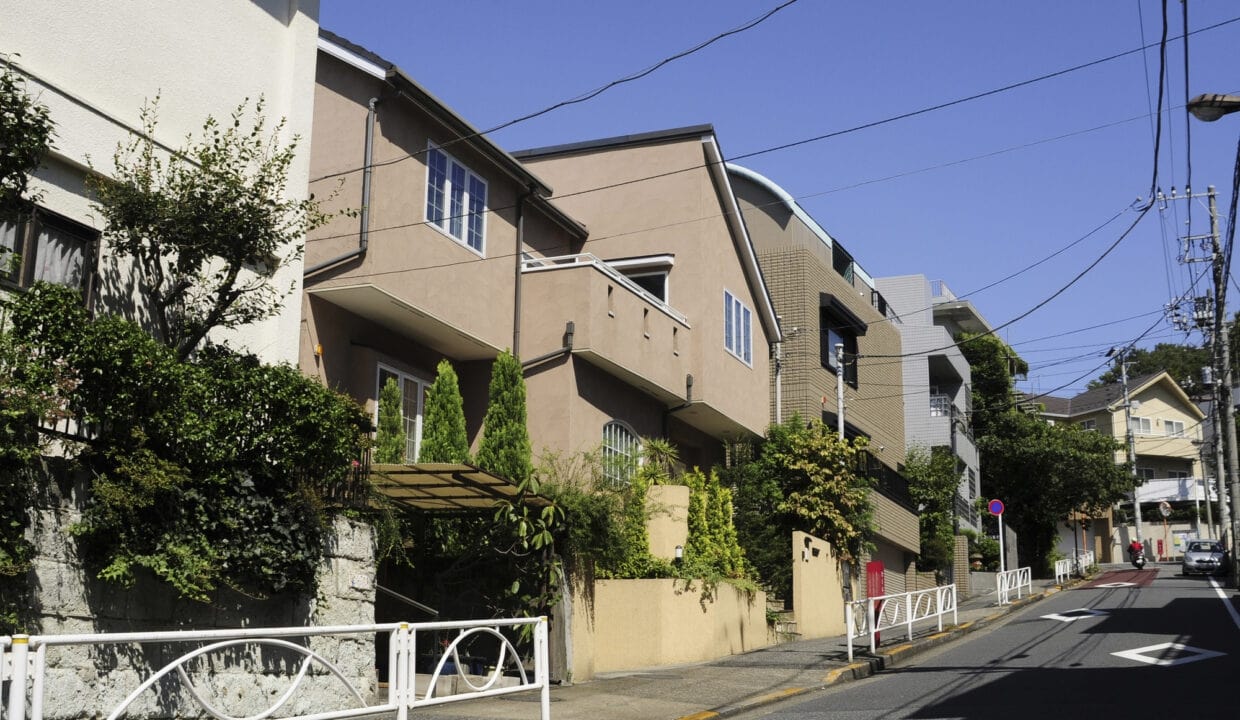Can Foreigners Buy a Property in Japan?
Oct 28, 2024
by
Blackship Realty
With over 3 million foreign residents as of 2024—the highest in history—Japan has reached an unprecedented level of international presence. In just the first half of this year, 17.78 million foreign visitors arrived, already exceeding pre-COVID levels.
These trends reflect Japan’s expanding cultural appeal, renowned safety, and favorable economic conditions, including a comparatively weak yen and a highly attractive real estate market. But if you are a foreigner, can you even purchase property in Japan?
Legal Framework for Foreign Ownership in Japan
Japan is one of the few countries in Asia where foreign nationals can buy and own property outright, enjoying the same legal rights as Japanese citizens. There are no restrictions on the types of property foreigners can purchase—whether residential, commercial, or land—and there’s no requirement to hold a residence visa.
What sets Japan apart from many other countries is the straightforward nature of property transactions. The purchasing process is generally efficient once a property is decided on, with clear legal procedures and minimal bureaucratic obstacles, making for a relatively quick and easy process when compared with Western countries.
However, while property ownership is unrestricted, it's essential to understand Japan’s distinction between land ownership and building ownership, as property law allows for separate titles for each. In some cases, particularly with condominiums and certain commercial properties, a buyer might own the building itself but lease the land beneath it—known as leasehold land.
However, the majority of land in Japan is freehold, meaning that when you purchase a property, you gain full ownership of both the land and the building.
Requirements for Foreign Buyers

Valid Residence Card or Visa
All foreigners living in Japan are required to have a valid residence card, called a zairyu card (在留カード) in Japanese.
However, if you are not a resident of Japan and purchasing property, it may be more challenging due to legal and administrative hurdles such as providing an affidavit.
Registered Seal
Foreign buyers who are using a housing loan must have a registered seal or jitsuin (実印), which is a personal stamp used in place of a signature on important documents.
This seal must be registered with the municipal office, and obtaining a seal registration certificate (inkan shomeisho, 印鑑証明書) is crucial, as it confirms that the document is stamped by the individual using their own seal. If not using a housing loan, this is not required.
Guarantee from a Guarantor Company
In many cases, Japanese banks and real estate companies require a guarantor for non-Japanese buyers due to unfamiliarity with the buyer’s financial history.
These guarantor companies charge a fee that can vary based on the property price.
How to Buy a Property in Japan?

First you must make a down payment. The down payment typically ranges from 5% to 20% of the purchase price, with 5% being the standard. This payment is made on the day of signing the contract and is a crucial step in securing the property.
The handover of the property generally occurs a few weeks after the contract signing. During this time, the remaining balance of the purchase price is paid. Following this payment, a judicial scrivener will handle the necessary registration updates to officially transfer ownership.
Costs Involved
There are several costs when you purchase a property in Japan, including:
Judicial Scrivener Fees: ¥100,000 – ¥150,000 for their services in preparing and filing essential documents.
Real Estate Agent’s Fees: Typically calculated as (Property Price x 3.0% + ¥60,000) + 10% consumption tax.
Other Costs: These may include insurance, house cleaning, and other miscellaneous expenses.
Taxes
When purchasing property, buyers must also account for various taxes:
Registration Tax: 2% of the property’s assessed value.
Stamp Duty: Ranges from ¥10,000 to ¥480,000 based on the property price.
Acquisition Taxes:
Land: Approximately 1.5-3% of assessed value.
Building: Approximately 1.5-3% of assessed value.
Commercial Property: Approximately 4% of assessed value.
Financing and Mortgage Options
Securing financing as a foreign buyer can present challenges. While it is possible to obtain a mortgage in Japan, many lenders require borrowers to have permanent residency or a long-term work visa.
Foreign investors without permanent residency may face a more rigorous application process, higher interest rates, and limited loan amounts. Conversely, obtaining a loan becomes significantly easier for those with permanent residency status, allowing for a smoother transaction and potentially more favorable terms.
If you plan on opening a bank account in Japan, the recommended options for foreigners are: Japan Post Bank, Mitsubishi UFJ Bank, Mitsui Sumitomo Bank, Mizuho Bank, Seven Bank, Shinsei Bank, SMBC Prestia Bank, and Sony Bank. Foreigners typically need to provide a valid passport, a residence card or visa, proof of address, and potentially a registered seal when registering.
Property Tax
Property owners in Japan are subject to a flat-rate property tax of 1.7% of the assessed value of the property, in addition to any applicable city planning tax.
This tax structure can be a considerable financial burden compared to property taxes in other Asian countries or the United States, where rates can vary significantly based on the region.
Conclusion
Japan's welcoming legal framework allows foreigners to buy and own property with the same rights as Japanese citizens.
With no restrictions on property types and a record number of foreign residents and visitors in 2024, Japan presents an attractive opportunity for investment. However, understanding the legal requirements and associated costs is crucial for potential buyers.
